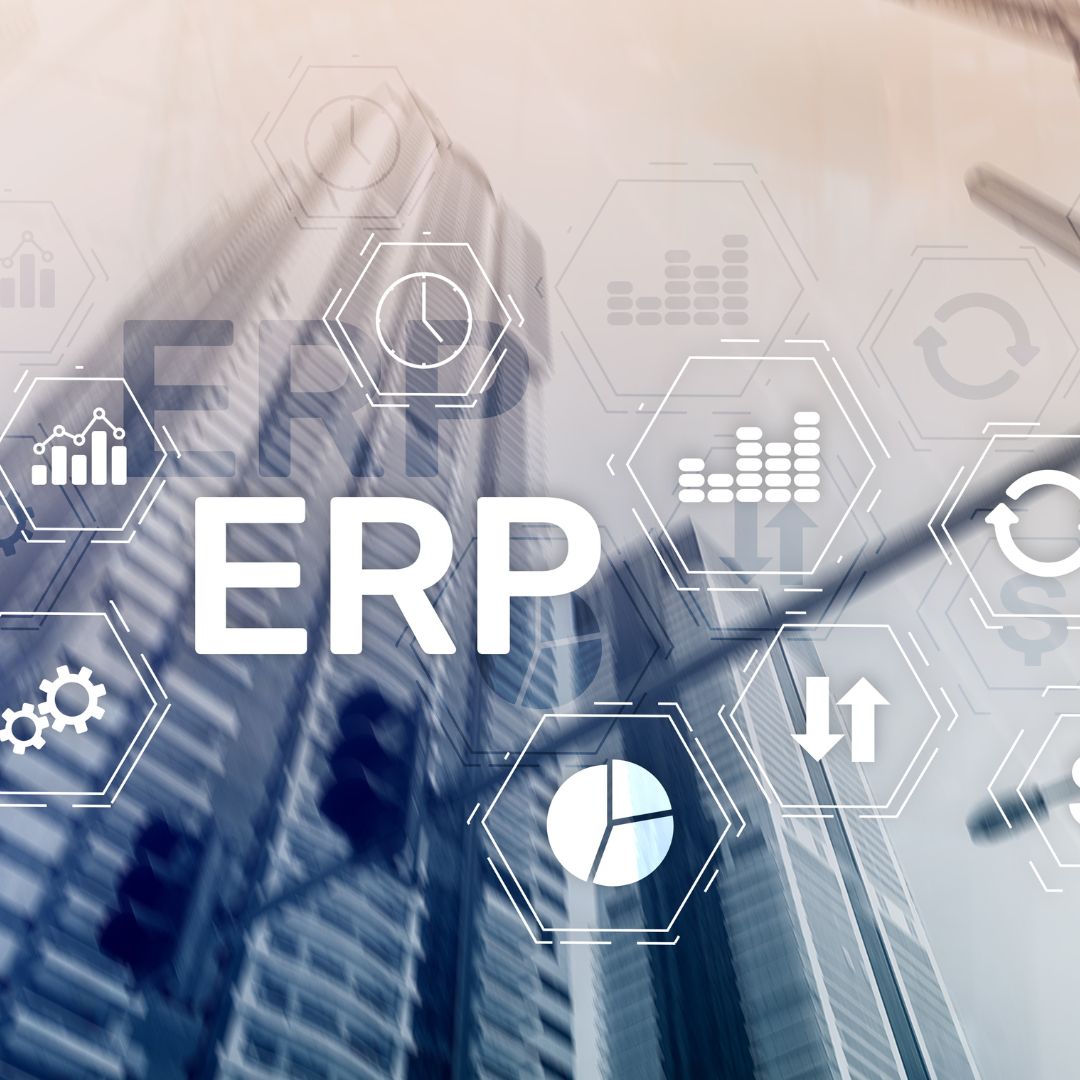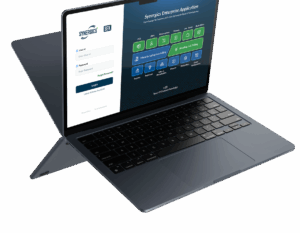In today’s fast-paced business environment, companies are constantly seeking ways to enhance efficiency, streamline operations, and improve overall productivity. One powerful tool that has emerged to address these needs is jewellery ERP software. This software offers a range of benefits, making it a valuable asset for businesses in the jewellery industry. With its ability to integrate various business functions, jewellery ERP software helps businesses manage inventory, track sales, and optimize production processes. In this detailed blog, we will explore the benefits of jewellery ERP software, the advantages it offers, and why integrating it can be a game-changer for your jewellery business.
What is an ERP System?
Before diving into the benefits, let’s briefly define what an ERP system is. An ERP system is an integrated software solution that consolidates various business processes and functions into a single, unified platform. It centralizes data and streamlines workflows across different departments, such as finance, human resources, supply chain management, and customer relationship management.
1. Enhanced Efficiency and Productivity
One of the primary benefits of an ERP system is its ability to significantly enhance efficiency and productivity within an organization. By automating routine tasks and standardizing processes, ERP systems eliminate redundant work and reduce manual data entry. This automation allows employees to focus on more strategic and value-added activities, ultimately leading to increased productivity.
For example, an ERP system can automate financial reporting, inventory management, and order processing, reducing the time and effort required to complete these tasks. This efficiency not only accelerates operations but also minimizes the risk of errors associated with manual processes.
2. Improved Data Accuracy and Consistency
The advantages of ERP systems extend to data management as well. ERP systems provide a centralized database where all information is stored and accessed. This centralization ensures that data is consistent and accurate across different departments and functions.
With real-time data updates and integration, employees can rely on accurate information for decision-making. This reduces the risk of discrepancies and ensures that everyone in the organization is working with the same set of data. Accurate data also facilitates better forecasting, planning, and analysis, enabling more informed business decisions.
3. Streamlined Business Processes
ERP systems are designed to streamline and standardize business processes. By integrating various functions into a single platform, ERP systems eliminate the need for disparate software and manual handoffs between departments. This integration leads to smoother workflows and better coordination among different parts of the organization.
For instance, an ERP system can seamlessly connect sales, inventory, and procurement processes. When a sales order is placed, the ERP system automatically updates inventory levels and triggers procurement processes if needed. This seamless integration reduces delays, improves order fulfillment, and enhances customer satisfaction.
4. Enhanced Reporting and Analytics
Another significant benefit of an ERP system is its advanced reporting and analytics capabilities. ERP systems offer robust reporting tools that allow businesses to generate comprehensive reports and gain valuable insights into their operations.
These reports can cover various aspects, such as financial performance, sales trends, inventory levels, and customer behavior. By analyzing this data, organizations can identify patterns, track key performance indicators (KPIs), and make data-driven decisions. Enhanced reporting and analytics help businesses stay competitive, adapt to changing market conditions, and optimize their strategies.
5. Better Financial Management
Financial management is a critical aspect of any business, and ERP systems play a crucial role in improving financial processes. ERP systems offer features such as automated financial transactions, real-time financial reporting, and accurate budgeting and forecasting.
By centralizing financial data, ERP systems provide a clear and up-to-date view of the organization’s financial health. This visibility enables better cash flow management, accurate financial forecasting, and timely financial reporting. Additionally, ERP systems can help ensure compliance with accounting standards and regulations, reducing the risk of financial discrepancies and audits.
6. Improved Customer Service
Customer satisfaction is a key driver of business success, and ERP systems can enhance customer service in several ways. By integrating customer relationship management (CRM) functionalities, ERP systems provide a comprehensive view of customer interactions and transactions.
With access to real-time customer data, employees can quickly respond to inquiries, track order status, and address issues efficiently. ERP systems also enable personalized customer interactions by providing insights into customer preferences and purchase history. This improved customer service leads to higher customer satisfaction and loyalty.
7. Scalability and Flexibility
As businesses grow and evolve, their needs and requirements change. One of the notable advantages of ERP systems is their scalability and flexibility. Modern ERP systems are designed to accommodate growth and adapt to changing business needs.
Whether you’re expanding into new markets, adding new product lines, or increasing your workforce, an ERP system can scale with your organization. Additionally, ERP systems offer customization options to tailor the system to specific industry requirements and business processes. This flexibility ensures that the ERP system remains relevant and effective as your business evolves.
8. Better Compliance and Risk Management
Compliance with industry regulations and standards is essential for businesses to avoid legal issues and penalties. ERP systems can assist in maintaining compliance by providing features such as audit trails, data security controls, and regulatory reporting.
ERP systems also help manage risks by offering real-time visibility into potential issues and providing tools for risk assessment and mitigation. For example, an ERP system can monitor inventory levels to prevent stockouts or overstocking, reducing the risk of supply chain disruptions.
9. Enhanced Collaboration and Communication
Effective collaboration and communication are vital for the success of any organization. ERP systems foster collaboration by providing a centralized platform where employees can access and share information easily.
With integrated communication tools and collaborative features, ERP systems facilitate seamless interactions between team members and departments. This improved communication enhances teamwork, reduces misunderstandings, and ensures that everyone is aligned with organizational goals and objectives.
10. Competitive Advantage
In a competitive business landscape, leveraging technology to gain an edge is crucial. Implementing an ERP system can provide a significant competitive advantage by improving operational efficiency, enhancing decision-making, and delivering superior customer service.
Organizations that effectively utilize ERP systems are better positioned to respond to market changes, optimize their resources, and capitalize on new opportunities. The efficiency gains and data-driven insights provided by ERP systems contribute to a stronger competitive position and long-term success.
Conclusion
The benefits of an ERP system are extensive and impactful for businesses seeking to optimize their operations and drive growth. From enhanced efficiency and data accuracy to improved financial management and customer service, ERP systems offer a range of advantages that can transform how an organization operates.
By integrating various functions into a unified platform, ERP systems streamline processes, enhance decision-making, and provide valuable insights into business performance. As businesses continue to navigate an ever-changing landscape, implementing an ERP system can be a strategic investment that delivers substantial long-term benefits.
If you’re considering adopting an ERP system, it’s essential to evaluate your organization’s needs, choose the right ERP solution, and work with experienced consultants to ensure a successful implementation. With the right ERP system in place, your organization can unlock new levels of efficiency, productivity, and success.
Ready to streamline your jewellery business? Buy jewellery software and transform your operations today!












